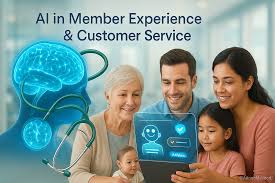
Have you ever wished marketing could be more personalized, efficient, and impactful? Imagine running a campaign so tailored that it feels as though it was crafted specifically for each customer. Traditional marketing methods, with their one-size-fits-all approach, struggle to meet the rapidly evolving expectations of today’s consumers. Generative AI development in marketing emerges as a transformative force, offering marketers the tools to revolutionize their strategies by automating creativity, personalizing interactions, and delivering campaigns that truly resonate.
Generative AI marketing doesn’t just simplify marketing; it redefines it. From crafting hyper-relevant email campaigns to generating data-driven ad creatives, this cutting-edge technology enables marketers to achieve more with less effort. Whether you’re a small startup or a global brand, generative AI development provides actionable insights, optimizing campaigns for maximum impact. Let’s uncover how this innovation can drive better results while enhancing customer relationships.
The Impact of Generative AI in Marketing
Generative AI is absolutely revolutionizing consumer marketing, allowing businesses to roll out highly personalized marketing campaigns in days or even weeks, instead of months. This innovative technology can significantly increase marketing productivity—by about 5-15% of total marketing spend, which is valued at an impressive $463 billion globally. With the power to generate content, design creatives, optimize ad targeting, and personalize customer interactions at scale, generative AI is changing the way brands engage with their audiences.
Furthermore, the efficiency gains driven by generative AI extend beyond just time savings. It empowers businesses to automate repetitive tasks such as copywriting, content creation, and social media management. This allows marketing teams to focus on high-level strategic decision-making while AI handles the time-consuming details. By integrating AI-generated insights into campaign execution, brands can tap into customer preferences with unprecedented accuracy, leading to more relevant and compelling messaging that resonates deeply with their target markets. An AI marketing solution helps streamline this process, making it easier for brands to create smarter, more effective campaigns.
As AI continues to evolve, its potential for scaling marketing efforts is limitless, making it an indispensable tool for marketers looking to stay ahead in an increasingly competitive landscape. With AI solutions, businesses are enhancing their productivity and achieving higher ROI, reaching broader audiences, and driving more meaningful customer relationships. These AI-powered solutions enable marketers to automate content creation, personalize messaging, and optimize campaigns in real-time, all while maintaining a high level of creativity and engagement. The future of marketing is here, and generative AI powers it.
Use Cases for Generative AI in Marketing
As I explore generative AI use cases, it’s fascinating to see how this technology enhances various aspects of marketing:
- Content Creation: Automating the generation of tailored marketing content like email, ad copy, and social media posts makes connecting with audiences easier and more efficient.
- Personalization: Using customer data platforms (CDPs), businesses can deliver personalized content throughout the customer lifecycle.
- Customer Segmentation: Generative AI allows marketers to segment customers based on common characteristics, enabling targeted outreach.
- Real-Time Campaign Adjustments: AI can dynamically adjust campaigns in response to changing market conditions and performance metrics.
- Conversational Marketing: Automation of two-way interactions via chatbots enhances engagement with customers.
- Campaign Optimization: Continuous performance analysis reveals trends, helping marketers to optimize campaigns effectively.
- Content Localization: Generative AI can tailor content variations for different languages and cultural contexts.
Integrating Generative AI into Marketing Automation
For marketers looking to leverage marketing automation with AI, the integration process can be seamless when guided by clear strategies. By combining AI’s capabilities with automated workflows, businesses can not only increase efficiency but also enhance personalization and engagement. Here are key steps to ensure smooth integration:
1. Set Clear Objectives:
Start by defining specific marketing activities or challenges to address using generative AI. Whether you want to improve content creation, automate customer segmentation, or optimize ad campaigns, having a clear goal will guide the integration process. Generative AI can be used for various tasks such as crafting personalized email copy, generating social media posts, or creating product recommendations based on consumer behavior. Aligning AI objectives with business outcomes will ensure that the technology is used effectively and delivers measurable results.
2. Data Insights:
Ensure you have clean, structured data aligned with your marketing goals. AI thrives on data, and the more accurate and organized your data is, the better the insights it can generate. This includes customer demographics, browsing history, purchasing behavior, and past campaign performance. When your data is structured properly, AI algorithms can analyze patterns, predict trends, and generate actionable insights to optimize campaigns. Make sure to continuously feed updated and relevant data into the system for continuous learning and improvement of AI-powered strategies.
3. Select the Right Tool/Platform:
Choosing the right AI tools or platform is critical for seamless integration into your existing marketing automation stack. Look for AI solutions that facilitate easy integration, scalability, and customization. Many platforms offer pre-built integrations with popular CRM, email marketing, and content management systems, enabling marketers to quickly adopt AI without disrupting existing workflows. Platforms like HubSpot, Salesforce, or Marketo offer AI capabilities for customer segmentation, lead nurturing, and predictive analytics. Additionally, AI-driven marketing platforms that provide intuitive interfaces for non-technical users are valuable for broader team adoption.
The Future of Generative AI in Marketing
I believe the future of generative AI in marketing holds immense potential. Here are a few trends I anticipate:
- Economic Impact: Generative AI could add trillions of dollars in value globally by enhancing productivity and addressing challenges with unstructured data.
- Data Analysis and Insights: AI will enable precise insights into target markets and predictive analytics to support strategic decisions.
- SEO Optimization: Generative AI can improve conversion rates and reduce costs with optimized digital content.
- Product Discovery: Personalized recommendations will transform how consumers discover and engage with products.
Conclusion
The transformative power of generative AI in marketing offers unparalleled opportunities for businesses to enhance personalization, optimize campaigns, and increase efficiency. By embracing this innovative technology, marketers can create more relevant, data-driven strategies that resonate deeply with customers, leading to improved engagement and higher ROI. As generative AI continues to evolve, its potential to reshape the future of marketing is limitless. Now is the time to integrate AI solutions into your marketing efforts and stay ahead in an ever-competitive landscape. Let’s harness the full power of generative AI to create meaningful, impactful experiences for our customers.
Write and Win: Participate in Creative writing Contest & International Essay Contest and win fabulous prizes.


